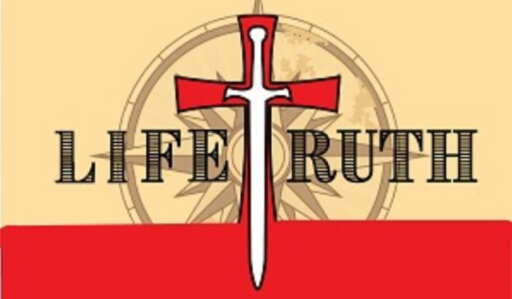Pilate may not have been wholeheartedly behind the crucifixion, but he had no qualms in administering a beating. As serious as scourging was (which could actually end in death) Pilate may have felt this would shut down the hostilities among the Jewish leaders.
capital punishment was a public event, and it gave the common soldier the chance to have some dark fun. Clearly, the mockery and using a fake crown and robe was intended to point towards Jesus official crime. King of the Jews.
Their cruelty wasn’t only an emblem or limited only to harsh words. There was a common game where soldiers would strike the victim, then demand to be told whose hands had struck him. This was called the red hand. When the victim couldn’t determine who his attacker was, they would all strike again.
After being brutally treated, bloodied and beaten, Pilate once again presented Jesus to his accusers. Would his roughed-up appearance be enough to satisfy them?
Although his charge was King, Pilate presented Jesus using the phrase, behold the man. (Not the king.)
It wasn’t enough, and the Jewish leaders demanded crucifixion. A punishment that could only come from the civilian government. When Pilate told them to crucify him themselves, he knew the Jews were not authorized to do it. At least he realized the truth, and knew there was no fault in Jesus. He was just too much of a coward to put his foot down to stop it.
The charge that the Jews had arrived at was blasphemy, or a man claiming to be God. I’m sure Pilate didn’t care, and didn’t want to be bothered with their religious laws. I’m sure that claiming to be a god didn’t break any Roman laws. But we’re back to square one, because the Jews needed Roman approval for capital punishment.
Pilate was suddenly afraid. The reason Pilate may have been afraid was big, not because of the Jewish religion, but because of the claim Jesus may have been the son of a god. Much the same way as Hercules was human but also the son of a god. I’m sure Pilate was skeptical of even Greek and Roman gods, but suddenly he didn’t want to take any chances either. I’m sure his blood ran cold. He needed to return to Jesus for more information.
Where was Jesus from? In their earlier conversation Jesus remarked he ruled the kingdom, what did he mean by that and where was it? Pilate was beginning to sweat. But Jesus gave no answers. He had already told Pilate everything he needed to know earlier.
Pilate began to flex his political muscle. Why didn’t Jesus recognize his authority? Wasn’t Jesus afraid to die? Didn’t he know that Pilate could and this by setting him free right now?
Jesus speaks, but not to plead his case or act in his own defense. He simply diffuses Pilate’s power play. Did he actually have higher authority than Pilate realized? What kind of trouble was Pilate getting himself into with this unknown authority?
Pilate must’ve wised up enough to try making political negotiations with the Jews. It wasn’t working. The Jews were not known for their love of Romans. Suddenly they became loyalists, and threatened Pilate. If Pilate let this alleged king free, he would be no friend of the Roman emperor.
Pilate could see no way out. Jesus had not given him anything for defense. All he could do was publicly put Jesus on the judgment stand. The pavement, or Golgotha, was the place where public punishments occurred.
We take a short break to read two challenges related to verse 14.
John gives the timeframe for the event. The day of preparation meant that at sunset, the day of Passover would begin. It was the last day for all Jews to scurry about and get things ready for this most holy of days. John sets the time at the 6 hours, or at noon. Pilate was giving them their last chance to accept their king, and end this travesty of justice.
The crowd (or thronging masses) was riled up. Nothing would do except crucifixion. Previously Pilate presented Jesus as a man, but now is presenting him as their king. Again, the Jews claim loyalty to the Roman Emperor. Extremely out of character for them. But the procession to the cross is just beginning.
Credit
Thanks to the recorded comments from J Vernon McGee. His ministry and daily bible study live on through Through the Bible Ministries (ttb.org)
When Scriptures in the show notes and episodes are quoted from the NASB. “Scripture is taken from the NEW AMERICAN STANDARD BIBLE®, Copyright © 1960,1962,1963,1968,1971,1972,1973,1975,1977,1995 by The Lockman Foundation. Used by permission.
–>
!–
Scripture taken from the New King James Version®. Copyright © 1982 by Thomas Nelson. Used by permission. All rights reserved.–>
Podcast: Play in new window | Download (Duration: 1:01:27 — 56.3MB)
Subscribe: Apple Podcasts | Amazon Music | Podchaser | RSS | More

